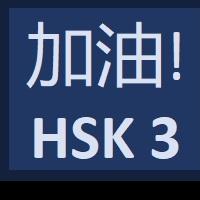HSK305-01
HSK3 05-01
HSK3 05-01
HSK3 05-01
HSK3 05-01
HSK3 05-01
HSK3 05-01
HSK3 05-01
HSK3 05-01
HSK3 05-01
HSK3 05-01
HSK305-01
朋友 :我 听说 你 身体 不 舒服 ,怎么 了 ?
bạn||nghe nói|bạn|sức khỏe||khỏe||
ami|je|entendre dire|tu|corps|pas|bien|comment|particule de changement d'état
friend|I|I heard|you|body|not|comfortable|what|(past tense marker)
amigo|yo|oír decir|tú|cuerpo|no|cómodo|qué|partícula de cambio de estado
Freund: Ich habe gehört, dass es dir nicht gut geht, was ist los?
Friend: I heard you are not feeling well, what's the matter?
Amigo: He oído que no te sientes bien, ¿qué te pasa?
Ami : J'ai entendu dire que tu ne te sens pas bien, que se passe-t-il ?
小丽 :前几天 有点儿 发烧 ,现在 好多 了 。
Xiao Li|il y a quelques jours|un peu|fièvre|maintenant|beaucoup mieux|marqueur de changement d'état
Xiao Li|a few days ago|a few days|a little|a fever|now|a lot
|trước|vài ngày||sốt|bây giờ|nhiều
||||Fieber||
||||熱がある||
Xiao Li|hace unos días|un poco|fiebre|ahora|mucho mejor|partícula de cambio de estado
Xiao Li: Vor ein paar Tagen hatte ich leichtes Fieber, jetzt geht es mir viel besser.
Xiao Li: I had a fever a few days ago, but now I feel better.
Tiểu Lý: Mấy hôm trước hơi sốt, bây giờ tốt hơn nhiều rồi.
Xiao Li: Hace unos días tenía un poco de fiebre, ahora estoy mucho mejor.
Xiao Li : Il y a quelques jours, j'avais un peu de fièvre, mais ça va beaucoup mieux maintenant.
朋友 :喝杯 茶 呢 ,这 是 我 为 你 买 的 绿茶 ,很 不错 。
|||partícula interrogativa||||cho||||||khá tốt
ami|boire|thé|particule interrogative|ceci|est|je|pour|tu|acheter|particule possessive|thé vert|très|pas mal
friend|a cup|tea|(question particle)|this|is|I|for|you|bought|that|green tea|very|good
|一杯||か|これ||私|ため|あなた|||||
amigo|beber una taza de|té|partícula interrogativa|esto|es|yo|para|tú|comprar|partícula posesiva|té verde|muy|bueno
Freund: Wie wäre es mit einer Tasse Tee? Dies ist Grüntee, den ich für dich gekauft habe, er ist sehr gut.
Friend: Let's have a cup of tea. This is the green tea I bought for you. It's very good.
BẠN: Uống một tách trà đi, đây là trà xanh tôi mua cho bạn, rất ngon.
Amigo: Toma una taza de té, este es el té verde que compré para ti, es muy bueno.
Ami : Que dirais-tu de boire une tasse de thé ? Voici du thé vert que j'ai acheté pour toi, il est très bon.
小丽 :谢谢 ,我要 吃药 ,不 喝茶 了 。
|cảm ơn|tôi muốn|uống thuốc||uống trà|
nom propre|merci|je veux|prendre des médicaments|ne|boire du thé|particule aspectuelle
Xiao Li|thank you|I|take medicine|not|drink tea|(past tense marker)
nombre propio|gracias|yo quiero|tomar medicina|no|beber té|partícula de cambio de estado
Xiao Li: Danke, ich werde Medizin nehmen, ich trinke keinen Tee mehr.
Xiaoli: Thank you, I want to take medicine, not tea.
Xiaoli: ありがとう、お茶の代わりに薬を飲みたいです。
Tiểu Lý: Cảm ơn, tôi phải uống thuốc, không uống trà nữa.
Xiao Li: Gracias, necesito tomar medicina, no voy a beber té.
Xiao Li : Merci, je dois prendre des médicaments, je ne vais pas boire de thé.
朋友 :那 喝 杯水 呢 。
|||cốc nước|
ami|alors|boire|un verre d'eau|particule interrogative
friend|that|drink|a glass of water|then
|||ein Glas Wasser|
amigo|eso|beber|vaso de agua|partícula interrogativa
Friend: What about a glass of water?
Amigo: Entonces, ¿tomas un vaso de agua?
Ami : Alors, un verre d'eau ?
小丽 :好 的 。
nom propre|bien|particule possessive
Xiao Li|okay|(particle for affirmation)
nombre propio|bien|partícula posesiva
Xiaoli: OK.
Xiao Li: Está bien.
Xiao Li : D'accord.
发烧 ,为
|vì
fièvre|pour
have a fever|for
|ため
fiebre|para
fever, for
Fiebre, para
Fièvre, pour
SENT_CWT:9r5R65gX=2.98 PAR_TRANS:gpt-4o-mini=1.11 SENT_CWT:9r5R65gX=2.2 PAR_TRANS:gpt-4o-mini=1.2
es:9r5R65gX fr:9r5R65gX
openai.2025-01-22
ai_request(all=10 err=0.00%) translation(all=8 err=0.00%) cwt(all=48 err=2.08%)
